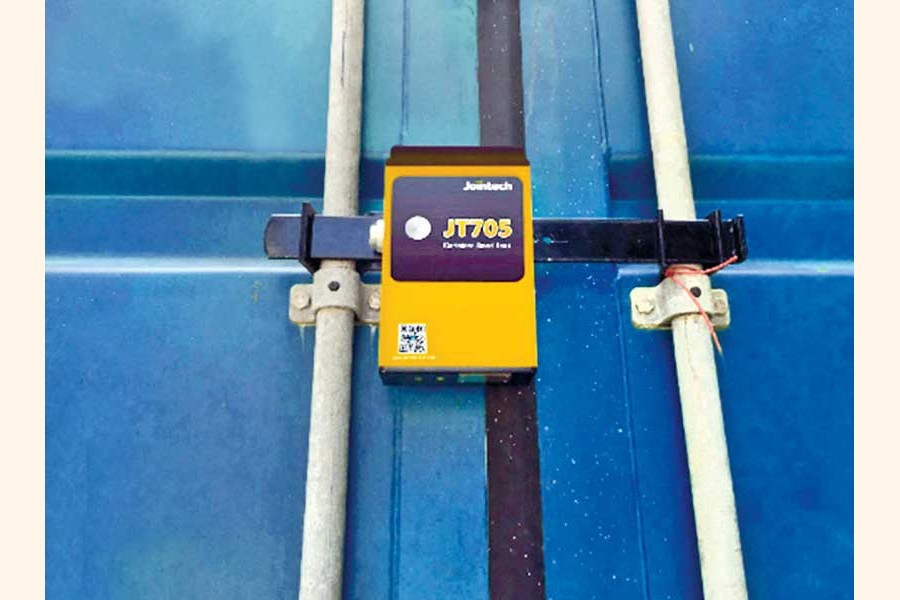Tax authority is set to make installation of e-tracking technology mandatory for containers with export-import goods, officials said.
To ensure cargo security and tax evasion, the National Board of Revenue (NBR) is now planning to hold talks with the businesses where the importance of mandatory use of electronic seal and lock will be highlighted, they said.
An NBR official said since 2017, the board has been asking the businesses to use this technology to ensure cargo security, but was unable to implement the option as companies were reluctant considering cost involvement.
Now, the board is receiving allegations for product mismatch, posing serious concern to the businesses, he said.
But the exporters said they did not do anything to temper containers, he said.
"Had the businesses used electronic seal and lock, such incident would not have happened. So, we're going to make installation of electronic seal and lock mandatory for containers of imported or exportable goods," he said.
As part of the plan, the revenue authority is now preparing for consultation with the business leaders before it issues a circular for mandatory use of the system.
NBR chairman Md Mosharraf Hossain Bhuiyan at a recent event made such an indication.
Talking about the issue, he said electronic seal and lock will also prevent duty evasion, particularly through preventing leakage of bonded goods.
Highlighting the importance of the latest security device, the NBR chairman said local businesses should start using the system as India, Nepal and Bhutan would soon start using Chattogram and Mongla ports for overseas trade.
"The business will go to the hands of people in other countries if we do not do so," he said, adding that the revenue authority will make it mandatory soon after talking with the business community.
Businessman Abdus Salam Murshedy, however, opposed the move, saying that it will not stop burglary on the highway at all.
Mr Murshedy, managing director of the Envoy Group, said the manufacturers send the goods on their own or through hired transportation system.
"Under the NBR, it will give us a lock. Can the lock give us direction which roads it should be followed or can it stop hijacking somewhere else?" he said.
"I think, this is going to be another measure that will further enhance their costs. It should not be accepted at all," he added.
According to the rules, exporters and importers will have to pay Tk 600 per container or covered van or truck or other modes of transport for the first 48 hours and then Tk 50 for every additional hour for the service.
Earlier, the Federation of Bangladesh Chambers of Commerce and Industry, and the Bangladesh Garment Manufacturers and Exporters Association opposed the rules in various forums.
The US-based Alif Corporation, owned by a Bangladeshi expatriate, proposed the NBR for introducing the technology first in 2014.
The company got the licence from the revenue board for providing the service based on a build-own-operate basis.
However, no traders have used the technology over the last one year and the licence period of the company has already expired.
The FBCCI people said such costly and time-consuming technology is irrational as exporters and importers are using various low-cost technologies to secure the containers.
Customs officials said the NBR has amended rules to align those with the transit and transshipment regulations between India and Bangladesh.
The standard operating procedures of transit and transshipment have a provision of using electronic seal and lock technology, they said.


